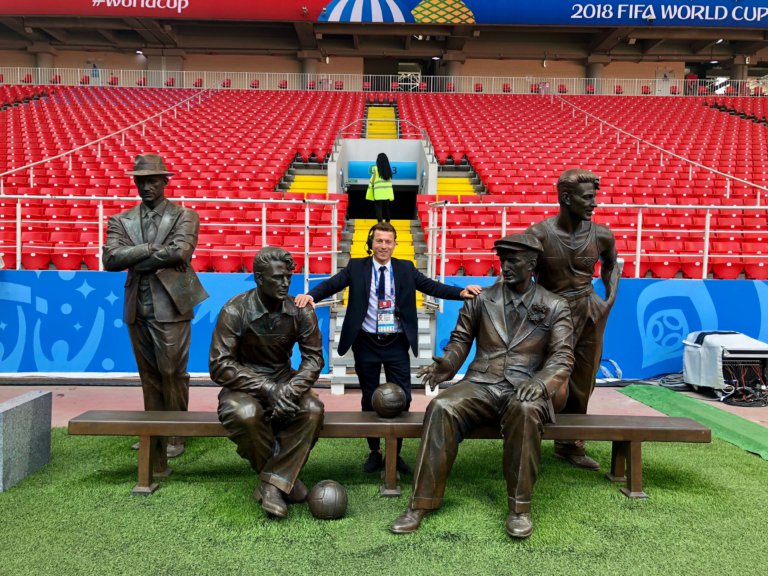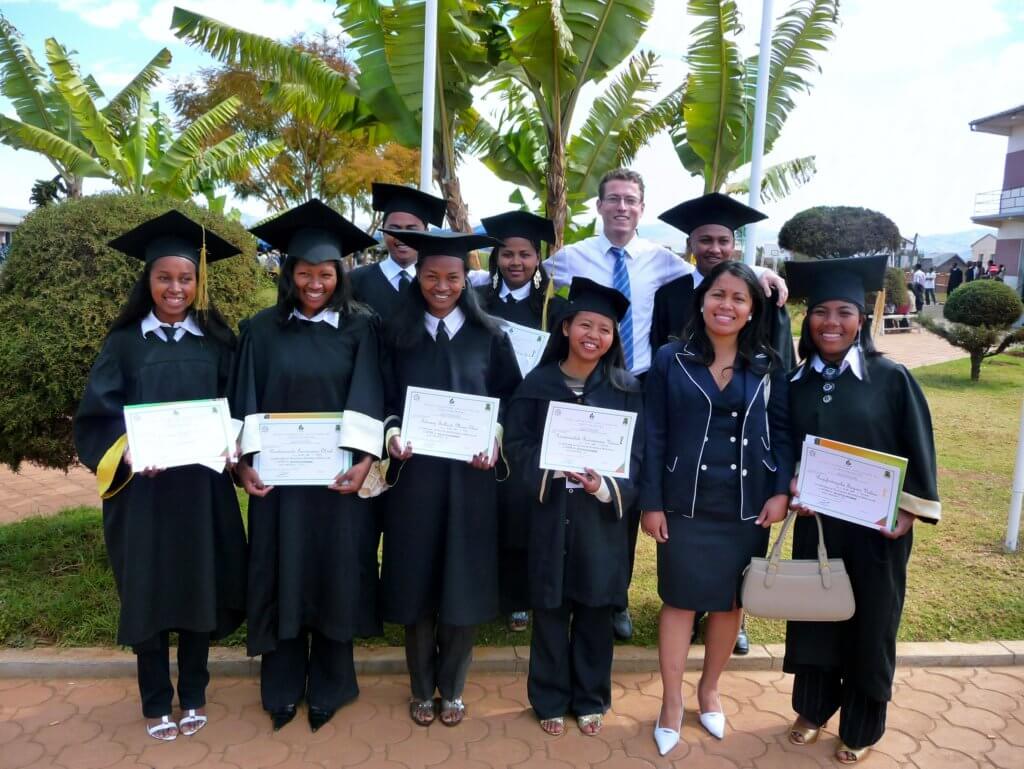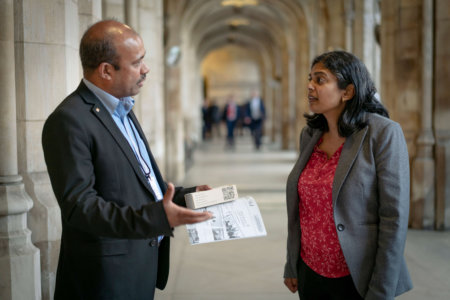
Before starting graduate school, Andreas Kaeshammer took a year off to discover the world. His destination? Madagascar.
His goal was to give back through education. For a semester, the German student volunteered at ESSVA University. “During our stay, many students had to end their studies due to lack of funds — often because of the early death of a parent and the need to go back home to support the family,” he shares. “We realised soon, to get out of poverty, education is the only way.”
Kaeshammer would go on to co-found a social entrepreneurship foundation for ESSVA students. After graduating with a Master in Management from ESCP Business School, he also co-founded Zukunft Madagaskar which is a charity promoting education and science in Madagascar.
Below we speak to him about his studies at ESCP Business School, his career trajectory and his advice for international students:
Where does your interest in business and management come from?
My father was an entrepreneur and founded his own company. This positively influenced me to pursue a similar path.
Moreover, I like turning ideas into reality which is perhaps one of my core strengths. It also explains my passion for project and business management.

“I supported the launch of a healthy casual fast food chain startup before my career in the sports industry. Football is my passion and as such, it was a natural move for me,” he says. Pictured here with students in Madagascar. Source: Andreas Kaeshammer
Why choose to pursue your MiM at ESPC Business School? Walk us through your experience in Paris, Berlin and London.
Clearly, the opportunity to study in three European cities was a very attractive proposition. The MiM programme offered a unique chance to embrace Europe as “one country” and build a strong network of friends and future business contacts.
After my studies, I could say that Europe feels like home now because I’ve lived all over. In the countries where I haven’t, I ended up with so many friends and connections that it felt like home when I would visit.
For instance, in Italy, where I didn’t live during my studies abroad, I can go to almost any city and have two or three ESCP Business School friends there. In addition, the international management track was a great addition of knowledge and skills to my general business administration degree that I got at ESB Reutlingen in Germany.
Tell us more about Zukunft Madagaskar and your social entrepreneurship.
Between my undergraduate and postgraduate degree studies, I took a year off to discover the world. Besides travelling, my goal was to give something back from the great education which I was fortunate to receive to those less fortunate students.
Together with my friends at Jakob and Manuel, I decided to volunteer as a lecturer at ESSVA University in Madagascar for a semester. The experience was life-changing for us.
During our stay, many students had to end their studies due to lack of funds (often because of the early death of a parent and the need to go back home to support the family). We realised soon, to get out of poverty, education is the only way.
We aimed to further this project when we got back home. Nelson Mandela’s credo “It always seems impossible until it’s done” inspired us so we set up a foundation to provide scholarships to students of ESSVA University.
Additionally, we established and continued the now called “education exchange programme”. Since 2008, usually between October and January, we have sent a team of three or four graduates to Essva University a year to manage our scholarship programme and continue the education exchange.
Zukunft Madagaskar has now become a success story of a tangible and effective social entrepreneurship programme realised by a group of more than 40 graduates from across Europe.
Tell us more about your career trajectory since graduating.
After graduating from the ESPC Business School, I started at Bain & Company in Zurich with a role in strategy consulting. This was an excellent time where I could immediately apply the skillset which I acquired at school and further grow my problem solving and project management experience.
After a couple of years, I supported the launch of a healthy casual fast food chain startup before my career in the sports industry. Football is my passion and as such, it was a natural move for me.
I’m glad to have pursued a career where I can do something I really love. It makes working a joy.
How do you use the knowledge and skills gained at ESPC Business School in your current job role?
Looking back to ESCP Business School, as soft as it sounds, multilingualism and cross-cultural management were invaluable skills I acquired. I now get to experience it daily, especially managing in international settings. Additionally, I gained a comprehensive business administration skillset much needed for general management.
Also, a high degree of quick adaptability and knowing how to hit the ground running in new settings which I learnt in Berlin, London and Paris during my three years abroad at ESCP Business School. From landing in a completely new place and finding a new flat, to opening a bank account and finding your local doctor every few months in a new city.
As trivial as it might sound, these were the things most people would not be familiar with on their own. Such adaptability and skills later helped me in managing projects in a work environment.
Infront’s Head of Football Andreas Kaeshammer recently wrote for @escp_bs‘s The Choice on his thoughts about how new tech is offering opportunities to break down barriers between the fans, the clubs and the stars. Take a read https://t.co/k3T5ZUKjyT
— Infront (@infrontsports) July 7, 2021
Are there any skills or knowledge you wish you had learned more during uni?
In hindsight, I would have chosen some additional hard skill classes. Such as a master’s in international management but with a more technical specialisation like data science.
Our specialisations were naturally more from the business world. Learning something different besides the core modules can give you a competitive edge depending on the industry you go into.
It is, however, never too late. In consulting, for example, you are forced to acquire certain industry-specific or expert knowledge very fast. A more profound knowledge base takes time, so I’d rather do that during my studies where you can dedicate time for it.
Do you have any advice for international students who plan to enroll in the same course you did?
Stay curious and follow your passion. Do not follow what you “have to” or “should do”. If you do something that excites you, you will excel and be successful.
Where do you envision yourself in 10 years?
My home is Switzerland and I love this incredibly beautiful country. I can picture myself here 10 years from now with kids and a happy family teaching young ones how to play football. In the winter I can see myself spending time in my second home — Mexico — doing a mix of remote-working while enjoying nice parts of the country.
Is there something you missed from home while you were studying abroad?
Family and friends are the most important thing to me in life. But I did not miss them so much since I got visits all year long and I also made new amazing friends abroad while at ESCP Business School.
One thing I did miss from time to time was a good German beer. When leaving for London, my friends and I packed a bunch of pallets with German wheat beer on our bus ride. After this reserve was exhausted, I indeed missed this piece of home.










